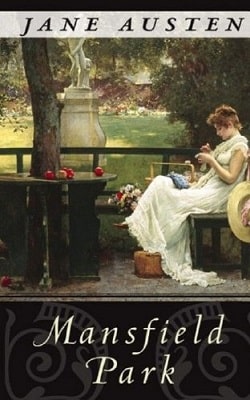Jane Austen's Mansfield Park is a novel that intricately weaves themes of morality, social class, and the complexities of human relationships within the framework of early 19th-century England. At its core, the story revolves around Fanny Price, a young girl who is adopted into the Bertram family and grows up feeling like an outsider in the opulent world of Mansfield Park. This novel, often overshadowed by Austen's more popular works like Pride and Prejudice and Emma, deserves a closer examination for its rich thematic depth and character development.
From the outset, Fanny Price is portrayed as a meek and timid character, which sets her apart from her more vivacious cousins. Her upbringing in a less affluent household starkly contrasts with the wealth and privilege of the Bertrams, creating a sense of alienation that permeates her existence. This outsider status is crucial as it allows Austen to explore the dynamics of power and class within the family. Fanny's moral compass, shaped by her humble beginnings, becomes a focal point of the narrative, especially when contrasted with the more flamboyant and morally ambiguous characters introduced later, such as Mary and Henry Crawford.
The arrival of the Crawfords marks a significant turning point in the story. Mary and Henry bring with them the allure of London society, characterized by flirtation, theatricality, and a disregard for the traditional values that Fanny holds dear. Their influence creates a palpable tension within the household, as the Bertram siblings are drawn to the Crawfords' charm and sophistication. This tension culminates in a crisis that forces the characters—and the readers—to confront the implications of their choices and the societal norms that govern their lives.
Austen's exploration of morality is particularly poignant in Mansfield Park. The novel challenges the reader to consider what constitutes true virtue. Fanny, despite her perceived weakness, embodies a steadfast moral integrity that ultimately positions her as the novel's moral center. In contrast, the Crawfords, with their seductive charm, represent a more superficial understanding of virtue, one that is easily swayed by social status and personal gain. This dichotomy raises questions about the nature of goodness and the societal pressures that can distort one's moral judgment.
Moreover, the theme of social class is intricately woven into the narrative. Fanny's position as a poor relation in the Bertram household highlights the rigid class structures of the time. Her struggles for acceptance and recognition within the family serve as a critique of the social hierarchies that dictate personal worth. Austen deftly illustrates how these class distinctions affect relationships, particularly through the lens of marriage. The novel ultimately suggests that true compatibility and respect in relationships transcend social standing, a notion that is embodied in Fanny's eventual union with Edmund Bertram, who, despite his own flaws, recognizes and values her intrinsic worth.
Character development in Mansfield Park is another area where Austen excels. Fanny's growth from a timid girl to a woman who asserts her values and desires is both subtle and profound. Her internal struggles and moral dilemmas resonate with readers, making her a relatable and sympathetic protagonist. In contrast, the Crawfords serve as cautionary figures, illustrating the dangers of prioritizing social ambition over genuine connection and integrity. Through their arcs, Austen critiques the superficiality of society and the consequences of living without a moral foundation.
The novel's darker undertones, as highlighted in Kathryn Sutherland's introduction, set it apart from Austen's other works. While Pride and Prejudice offers a more romanticized view of love and relationships, Mansfield Park delves into the complexities of human behavior and the moral ambiguities that accompany it. The backdrop of slavery and colonialism, particularly through Sir Thomas Bertram's investments, adds a layer of historical context that invites readers to reflect on the ethical implications of wealth and privilege. This post-colonial perspective enriches the narrative, prompting a reevaluation of the characters' motivations and the societal structures they inhabit.
In comparison to other novels of the period, such as Charlotte Brontë's Jane Eyre, Mansfield Park presents a more subdued exploration of the female experience. While Jane Eyre seeks autonomy and passion, Fanny Price's journey is marked by restraint and moral fortitude. Both characters grapple with their identities and societal expectations, yet their paths diverge significantly. Austen's portrayal of Fanny as a figure of quiet strength challenges the notion that assertiveness is the only form of empowerment available to women in her time.
Overall, Mansfield Park is a complex and thought-provoking novel that invites readers to engage with its themes of morality, class, and the intricacies of human relationships. Austen's nuanced characterizations and the moral dilemmas faced by her protagonists create a rich tapestry that resonates with contemporary audiences. The novel's darker elements and its critique of societal norms elevate it beyond a mere romance, making it a profound commentary on the human condition.
In conclusion, Jane Austen's Mansfield Park remains a vital work that challenges readers to reflect on their values and the societal structures that shape their lives. Its exploration of morality, class, and character development ensures its place as a significant contribution to English literature, deserving of both critical and popular recognition.
























Reviews 0
Post a Reviews: